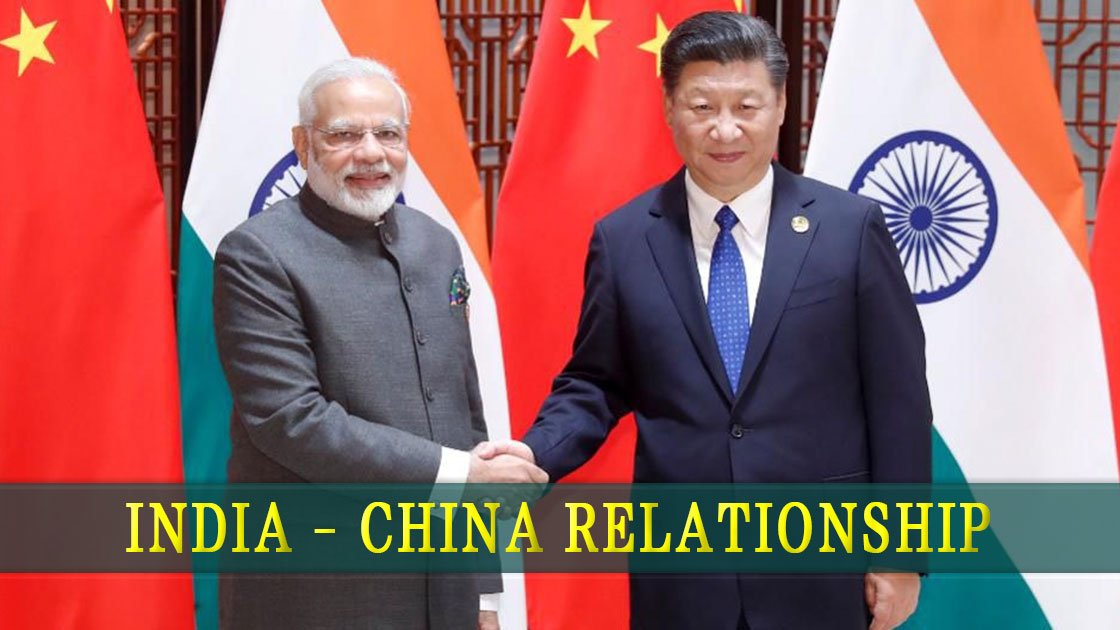India and China are two such countries of the world, which hold tremendous potential to create, impact, modify the geo-politics and economy of Asia as well as the world. Being neighbours and first and second most populated countries in the world makes them natural rivals. Although, India and China share many common cultural interests, the competition of becoming a superpower in the region is not hidden by the world. However, for such powerful countries which are neighbours too, it is important that relations are peaceful and encourage mutual growth. But, there are irritants and issues, some new and some very long-pending, which act as pinching point between the Sino-India relationship. Border, trade, trust issues, etc. have been now and then popped up.
China and India have been in trade since ages and with trade comes certain matters. India has a major trade deficit with China, in the year 2018 it was as large as $57.86 billion for a total bilateral trade of $95.5 billion. This is attributed to increased imports from China into India whereas export numbers from India to China are not so much encouraging. China has achieved considerable trade surplus by investing less and saving more. It has also been in the news for sustaining exchange rates in its favour by manipulating currency. These issues can be talked out by having regular bilateral dialogues, understanding each other’s concern.
China has also been calling out India to join Regional Comprehensive Plan of Action (RCEP). Joining RCEP will strengthen India’s participation in regional trade and its further economic growth however this is not devoid of concerns for the country as it will make its markets vulnerable to cheap products from China which will eventually hamper the local markets here. Also, India already has trade deficits with about 11 countries of RCEP already.
India is also caught-up in the ongoing trade war between US and China. India has to keep up good relations with China in all fields and not upset the US simultaneously. The endorsement of India as a key player in US Indo-Pacific strategy might make China furious. Apart from these issues, there are boundary issues as well, the Doklam stand-off and consequent tensions were a set-back in the relationship. In addition to it, the recent dilution of Article 370 in Jammu and Kashmir made China wary about its hold on the Aksai Chin region of the former state. Furthermore, China’s initial stand on the Kashmir issue which was inclined towards Pakistan was worrisome for India. China’s proximity to Pakistan has never been a good news for India. The China-Pakistan economic corridor (CPEC) of the Belt and Road Initiative (BRI) runs through PoK raises a core issue of sovereignty for Indian Government. India has also maintained a visible distance from the BRI on which India can further ponder upon. The BRI exhibits China as a regional superpower highlighting its ambition to be a political hegemony in the area. India, along with US has been critical of the issues related to transparency, corruption and bias in BRI projects. Moreover, China has blocked India’s entry into the Nuclear Suppliers Group (NSG) since long. On one hand where China states that India is not part of Non Proliferation Treaty (NPT) but on the other hand it supports Pakistan’s claims to join which is also not a member of the NPT.
Water as a commodity of geopolitical and geostrategic significance has been highlighted in recent-times. China’s plan to develop infrastructure such as dams on rivers that flow in India and diverge waters for its use will decrease the inflow into India. Such issues can be resolved by holding proper talks and signing agreements for mutual benefit of the people. The recent military exercise of the Indian Army in Arunachal Pradesh ahead of Chinese President Xi Jinping in Mamallapuram has irked China. The hosting of Pakistani PM Imran Khan by China in the same week when Mr. Xi Jinping visited India has not been appreciated by India. Therefore, the relationship between India and China has always been on a roller-coaster ride but summits like Wuhan Summit, which was called after the Doklam crisis has proved to reset the strained ties. The reaction of China after the dilution of Article 370 seemed to have caused a glitch in the relations. Here, the second informal summit recently held in Mamallapuram can prove to be a new dawn for improving and working on the setbacks. Despite the healthy competition, both countries must try to revive the age-old golden relationship and recognize the significance they hold together in today’s world- especially in recent times when the global economy is not doing well. If succeeded India-China relationship will indeed prove to be a key to the door which will lead Asia to own the 21st century.
